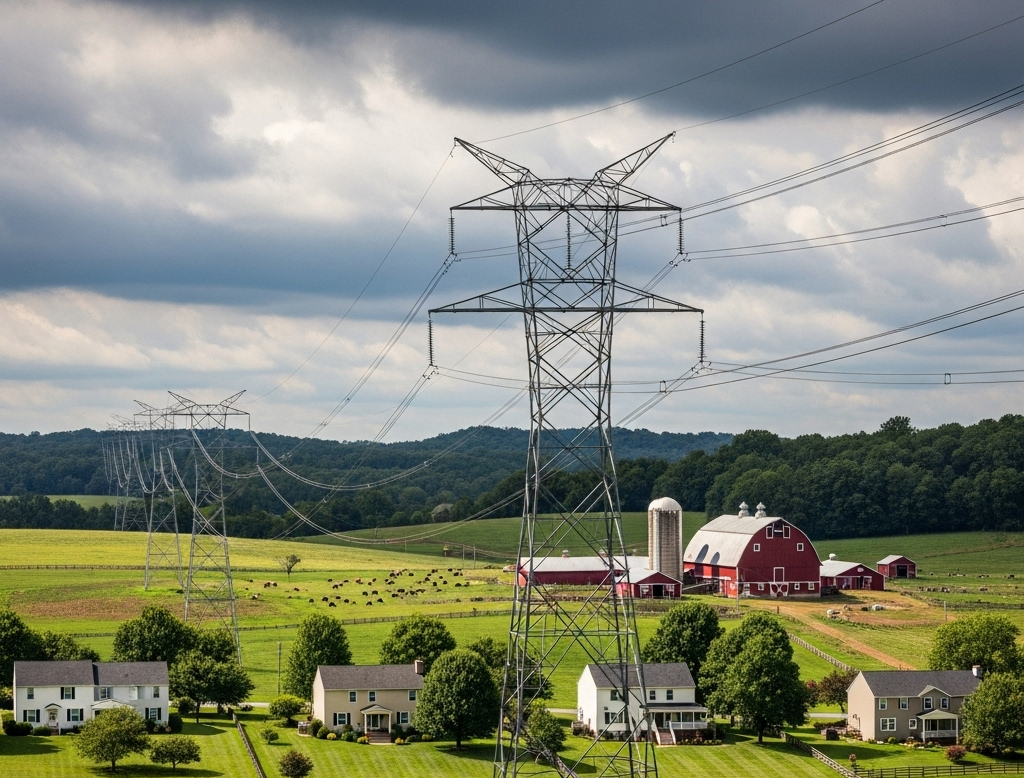 When Loudoun County Treasurer Henry Eickelberg stood up at Rock Ridge High School to offer his two cents on Dominion Energy’s proposed “Golden to Mars” transmission line, it might have sounded reasonable on the surface. Underground lines, community character, power grid stability—all the right buzzwords.
When Loudoun County Treasurer Henry Eickelberg stood up at Rock Ridge High School to offer his two cents on Dominion Energy’s proposed “Golden to Mars” transmission line, it might have sounded reasonable on the surface. Underground lines, community character, power grid stability—all the right buzzwords.
But here’s the problem: Eickelberg isn’t just out of his depth—he’s in the wrong lane entirely.
The role of Loudoun’s Treasurer is to manage taxes, not to weigh in on utility infrastructure projects. And while every Loudoun resident is entitled to voice their opinion before the State Corporation Commission (SCC), the Treasurer’s public platform gives his remarks undue weight. That’s troubling when his comments risk soft-pedaling what’s really going on with this project: the continued expansion of data center infrastructure under the guise of “grid reliability.”
Let’s be clear—this transmission line is being built to serve one industry. Not families in Sterling or Purcellville. Not schools or farms. It’s for data centers, and we all know it.
Eickelberg says “strong communities and strong grids go hand in hand.” That’s an easy phrase to say, but it completely glosses over the fact that Loudoun’s communities are bearing the brunt of unchecked data center growth—rising noise levels, visual blight, 24/7 power demands, and now high-voltage lines cutting through neighborhoods and scenic areas.
And what’s more concerning? The Treasurer suggested hybrid or underground lines only “in residential areas.” What about Loudoun’s rural villages? Our historic landscapes? Our farms and open spaces? Do they not count as part of Loudoun’s community?
This county’s identity is more than rooftops and tax parcels. It’s also ridgelines, gravel roads, and places where families have lived for generations. If Eickelberg wants to speak about preserving confidence in community institutions, then he should take a hard look at how these transmission projects are being fast-tracked while residents scramble to get accurate information.
Make no mistake—the SCC isn’t weighing grid reliability in a vacuum. It is balancing the explosive growth of a power-hungry industry against the rights of actual people who live here. That’s the real debate. And the Treasurer, an elected official whose job is to administer tax payments—not energy policy—should think twice before speaking in ways that sound like endorsements of Dominion’s playbook.
Loudoun needs leadership that challenges unchecked development, not one that tries to make it more palatable. If Eickelberg truly wants to protect this community, he should stick to his constitutional duties and leave energy planning to those who answer directly to voters on land use and infrastructure decisions.



